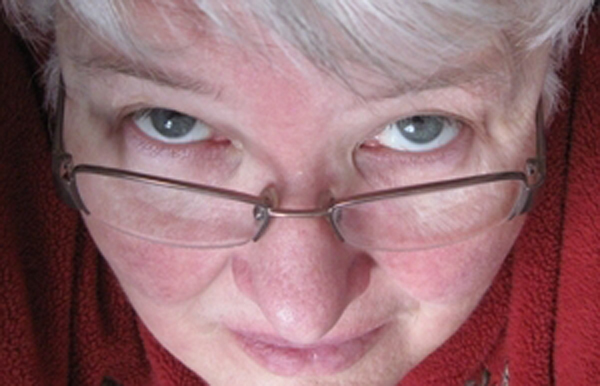Before each issue I receive a few emails about upcoming news from various contacts. Usually, they tell about upcoming events. Here’s one I received from an estimed source, telling about considerably more.
“No announcable news from these precincts, other than the fact that the Keeling curve continues its steadfast and inexorable rise upwards, even I witness my contemporaries zooming about the face of the earth in endless pursuit of perceived need and desire. Maybe you can work that into your column without offending anyone?”
Ok. Where to begin? Brian Creelman’s precincts are burgeoning with nature: gardens, a greenhouse, a seed storage facility, ducks, chickens, dog, and a incessantly questioning brain. Located near Bishopton. He’s acutely aware of the Keeling curve. That’s a graph that plots the amount of carbon dioxide in the earth’s atmosphere. Since 1960, it’s been going up at an alarming rate. Carbon dioxide traps heat in the atmosphere, and its increase leads to an overall warming of the planet.
We see it happening, but mostly we go about life as if…
In my father’s well-worn 1914 edition of Henry David Thoreau’s Walden or Life in the Woods, I read “The mass of men lead lives of quiet desperation. What is called resignation is confirmed desperation.” Thoreau was talking about the complexities of trying to earn more, buy more, and fulfil our ever-increasing wishes and wants. I don’t think he could have imagined how we, today, have carried this to such an extreme that we are choking our world in plastics, exhaust fumes and pavement.
Thoreau suggested an alternate route: “Simplify, simplify.” He advocated living in nature. Yes, Brian.
Brian has strong feelings, eloquently expressed. “One might be led to believe that the purpose of human life – the human “condition” – is to be farmed by pistons, if one had just arrived here from some distant planet. Look around your environment: try to imagine a life without pistons yoked to the myriad enablements of human supremacy and exceptionalism.
“These enablers roar by on the highway in the form of Doppler Dragons, angrily rumbling their loot to the centres of consumption: the building marts, the grocery stores, the shopping malls, the gas stations, the ‘shining cities on the hills’. They are up in the sky as well, airliners and satellites.”
Pistons make combustion gases work to propel our many gas-fuelled vehicles. So if I understand, Brian, you are suggesting we serve our oil industry, rather than the other way around. Hmm. We’re living the stuff of science fiction. Now that’s fuel for thought.
HOUSES & BALCONIES IN BLOOM
The Coeur Villageois of Cookshire-Eaton has unfurled the details of its 2018 edition of the Houses and Balconies in Bloom Contest / Concours maisons et balcons fleuris. In 2017, more than $800 in prizes were awarded to 10 winners, and this year, more than $1,300-worth of prizes are up for the winning.
The theme is “Marry the Beauty of Nature and Antiques,” highlighting the cultural heritage of our region. Participants are invited to create gardens incorporating local cultural heritage objects such as, for example, split rail fences, cartwheels, or antique water pumps. Many prizes are to be awarded for composition, creativity and design in three categories: front yards, balconies, and participation for all villages. The prizes are in the form of gift certificates from some 25 local enterprizes, with the top prizes worth $200 each.
The first step is to get your hands on a contest poster, available in either English or French, which lays out all the criteria and prizes, and offers many creative suggestions. Also, on the Cookshire-Eaton website is to be a list of the most common perennials of local historical gardens. You can also consult chapter 7, Landscaping in an Older Neighbourhood, in the free guide, Property Restoring and Enhancing Your Old Home. The guide is available at the Cookshire-Eaton Town Hall or the John Henry Pope Cultural Centre.
Then you can create your own blooming design, let it grow, and send one or two photos of your design before Friday, July 27, to the Cookshire-Eaton Town Hall. Happy gardening! Info: 819-560-8585 x 2311.
June 13: COLOUR CAFÉ
On Wednesday, June 13, from 2 to 4 p.m. a Colour Café will be at the John-Henry-Pope Cultural Centre, 25 Principale West, Cookshire. Participants are welcome to bring colouring supplies or to use what is available. Tea, coffee, and snacks are provided.
July 7: SAWYERVILLE MARKET
This summer, the Sawyerville Community Garden is on Saturdays from July 7 to September 22, from 10:30 a.m. to 12:30 p.m.
FROZEN MEALS & TRANSPORTATION
The bi-weekly frozen meals-on-wheels service and volunteer transportation services will continue throughout the summer. The coordinator of English services, Diane Grenier, can be reached at 819-238-8541, or by email at coordo@cabhsf.org. During the period of June 21 to August 21, you can reach Diane on July 24 and August 7 to place your order for meals. For any needs at other times, just call the Centre d’action bénévole du Haut-Saint-François at 819-560-8540 on Monday to Thursday, 9 a.m. to noon or 1 to 4 p.m., or Friday, 9 to 11:30 a.m.
CHURCH SERVICES
Anglican. On June 17, the Sunday service is at the St. John’s Church in Brookbury; On June 24, at the St. Paul’s Church in Bury, and on July 1st, at the St. Peter’s Church in Cookshire. All services are at 10:30 a.m. Info: 819-887-6802.
United. On June 17 and 24, Sunday services are at the Cookshire United Church at 9:30 a.m. and the Sawyerville United at 11 a.m. On July 1st, the service is in Sawyerville at 10:30 a.m. Info: 819-889-2838 (listen to message).
Baptist. In Sawyerville, the Sunday worship service is at 9 a.m. in French, and 11 a.m. in English. Sunday school is at 10 a.m. in English and French. Info: 819-239-8818.
Do you have news to share? Call 819-300-237
4 or email ra.writes@gmail.com by June 25 for publication July 4 and by July 16 for August 8.


